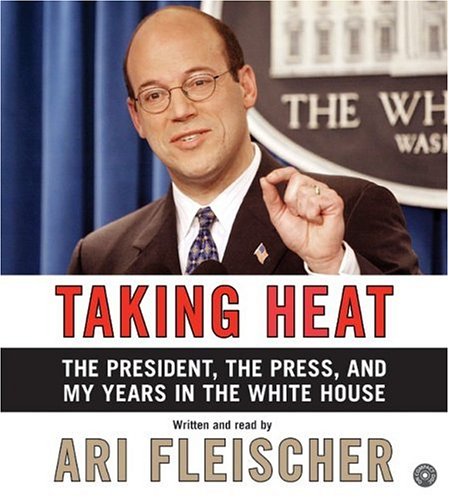For two and a half years, Ari Fleischer served as the official liaison between the White House and members of the press, acting as the voice of President George W. Bush.
In Taking Heat, Fleischer goes behind-the-scenes in the West Wing, giving his perspectives on:
• September 11, 2001, its aftermath, and the anthrax scare
Fleischer believes that the press has a bias in Washington — It's not a question of partisanship or press driven ideology. It's a focus on conflict they can attach to the President. The White House press corps are masters of the devil's advocate. Fleischer's job was to calmly field their questions, no matter how pointed. He calls the press a tough, sharp, skeptical group. They call him tight-lipped and secretive. But at the end of the day, they had a bond.
Taking Heat is an introspective and analytical exploration of the major political events in the first half of the Bush administration, as well as the candid observations of a professional who stood in the bright lights of the world stage.



